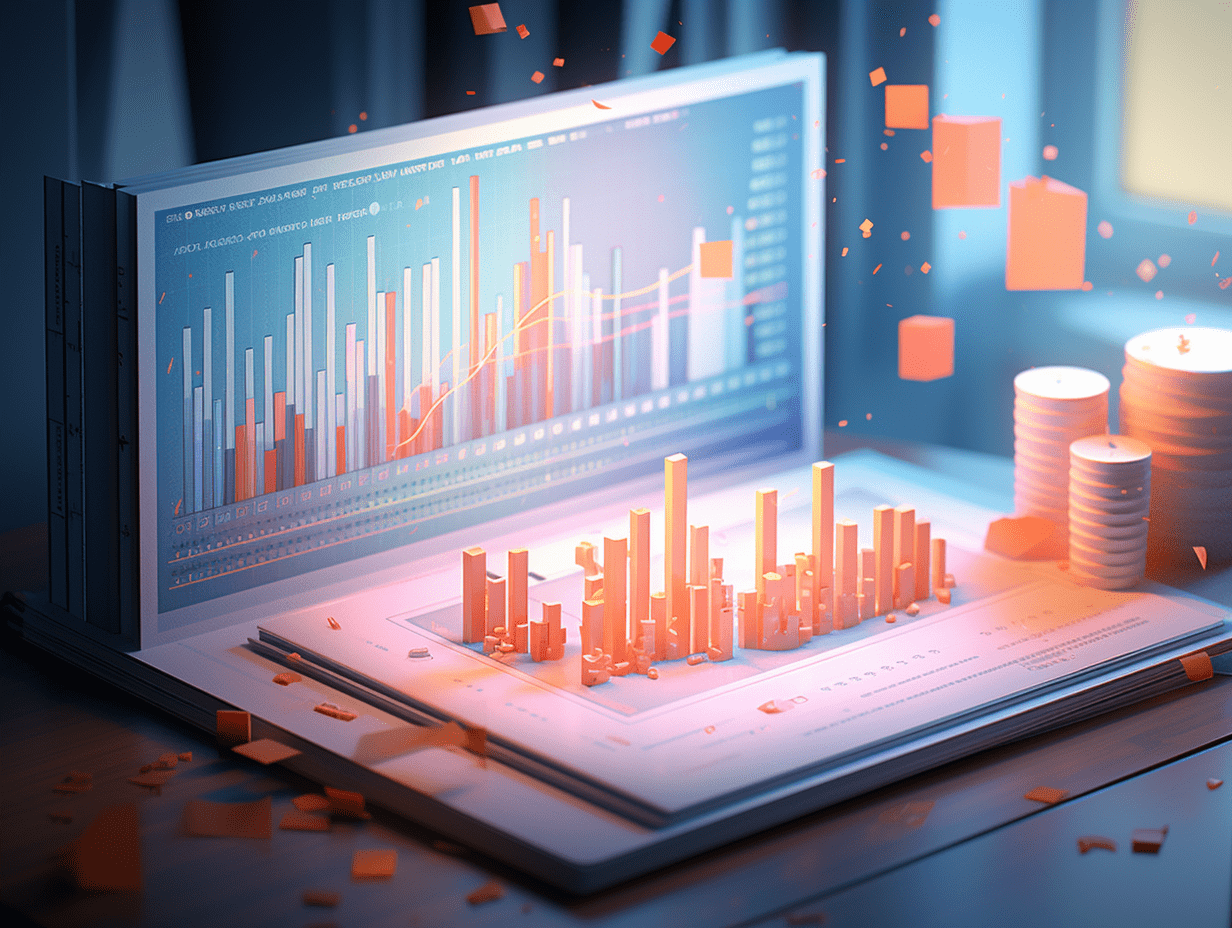Tug of War in the United States: Profits vs Tariffs
BlackRock pointed out in its latest "Weekly Commentary" that there is a tug of war between the drag on the US economy caused by tariffs and the growth in profits of US companies driven by artificial intelligence.
BlackRock pointed out in its latest "Weekly Commentary" that there is a tug-of-war between the drag of tariffs on the US economy and the profit growth of US businesses driven by artificial intelligence. Currently, the latter is in the lead, but it is crucial to conduct a detailed analysis as businesses and consumers bear the cost of tariffs. US trade data will show the extent of the impact of tariffs on imports, while employment data indicates a slowdown in economic activity, leading to a decline in the US stock market and a decrease in bond yields. BlackRock believes that various macro factors are intertwined, making the outlook uncertain. As the impact of tariffs becomes clearer, the resilience of US business profits continues to show.
BlackRock believes that risk assets are in a tug-of-war:
On one hand, there are strong US business profits driven by the theme of artificial intelligence, while on the other hand, there is damage to economic growth and inflation from tariffs. Second-quarter earnings results show that the theme of artificial intelligence currently has the upper hand, but the question of who will ultimately pay for the tariffs remains unresolved. In essence, the ultimate payers could be consumers and businesses. BlackRock believes that the strength of US businesses may mitigate this impact, so they continue to overweight stocks related to the theme of artificial intelligence and US stocks. When monitoring the impact of tariffs, BlackRock will conduct a detailed analysis.
The strength of US businesses according to BlackRock: a comparison of profit margins of US and European businesses from 2005-2025.
(These lines show the 12-month forward profit margins of the S&P 500 Index and the MSCI Europe Index, Note: Forward-looking estimates may not be realized. The indices are managed by professional institutions, and investors cannot directly invest in the indices. Source: BlackRock Investment Institute, data from the London Stock Exchange Group data stream, July 2025)
The "reciprocal" tariffs announced by the US on April 2 sparked historic market volatility, and now the impact is gradually becoming apparent as the US reaches agreements or imposes higher tariffs.
US Treasury data shows that the effective tax rate on US imported tariffs is currently around 15-20%, higher than BlackRock's earlier expectations, resulting in revenues of $27 billion in June. This means that someone is paying for the tariffs, and the extent of damage to economic growth and the rise in inflation from tariffs will depend on who is paying.
Ultimately, the payers could be a combination of foreign suppliers, US businesses (through profit margins), and consumers (through inflation).
However, data from the London Stock Exchange Group shows that despite the impact of tariffs, US business profits remain strong: second-quarter US business profits increased by about 8% year-on-year. The chart shows that US business profit margins are at historical highs, while European business profit margins remain flat. Last week, cases from Microsoft and Meta showed that large US tech stocks are increasing their investments in artificial intelligence.
A series of recent trade agreements announced in the past few weeks have somewhat eliminated the uncertainty of the actual level of tariffs - even though the current tariff levels are several times higher than at the end of 2024. The impact of tariffs on US consumers has been slow to appear, partly because businesses hurried to import goods before the expected implementation of tariffs in April. Tariffs do not apply to vessels that have left ports, transportation may take weeks, and even if goods arrive, businesses can delay payments. Many businesses have not raised prices until clearer information is obtained.
However, this offsetting effect is weakening: second-quarter US inflation data shows that prices of durable goods are rising at the fastest pace since 1991, except during the pandemic. Therefore, consumers are beginning to bear some of the costs of tariffs, especially in home appliances and electronics. Businesses are also beginning to pay the price: some of the global automotive manufacturers most affected by tariffs have reported significant profit write-downs.
The situation of automotive manufacturers highlights the complexity of the tariff issue. As tariffs are implemented, US automakers such as General Motors and Ford are experiencing significant profit losses and choose to bear the cost of tariffs themselves. Japanese and Korean automakers are absorbing the cost of tariffs by lowering prices of vehicles sold in the US. In Europe, this pricing pressure is particularly severe as European automakers must compete with cheaper electric cars from China, while facing restrictions on raising prices. In contrast, premium product manufacturers like Ferrari are raising prices - highlighting the importance of pricing power.
In BlackRock's view, this is why the resilience of business profits is crucial. Automotive manufacturers belong to the manufacturing sector. The industrial sector - with the highest level of global supply chain integration, primarily consisting of manufacturers - may be most affected by tariffs. However, data from the London Stock Exchange Group shows that the industrial sector is the best-performing sector in this year's S&P 500 Index, with a gain of about 15%, compared to the overall gain of 6% for the S&P 500 Index. Why is that? The industrial sector benefits from the development of artificial intelligence and other key themes driven by major forces, such as geopolitical fragmentation and an increase in defense spending this year. This is why in the current environment, there is a tendency to conduct detailed analysis at the sector level and to take an active approach to generating returns.
In conclusion, BlackRock believes that there is a tug-of-war between the drag of tariffs on the economy and the profit growth of US businesses driven by artificial intelligence. In BlackRock's view, the latter is currently in the lead, but it is crucial to conduct a detailed analysis as businesses and consumers bear the cost of tariffs.
Related Articles

SpaceX delays Mars mission, focusing on moon landing instead.

Rate Cut Expectations Rise Again, $30 Trillion US Bond Market to Face "Data Week" Test

Bitcoin experiences a "roller coaster" market, with intense fluctuations reigniting speculative enthusiasm. Analysts believe that it may be difficult for Bitcoin to return to its previous highs in the short term.
SpaceX delays Mars mission, focusing on moon landing instead.

Rate Cut Expectations Rise Again, $30 Trillion US Bond Market to Face "Data Week" Test

Bitcoin experiences a "roller coaster" market, with intense fluctuations reigniting speculative enthusiasm. Analysts believe that it may be difficult for Bitcoin to return to its previous highs in the short term.






